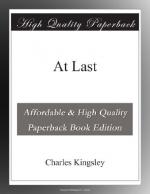Unless there were some substantial and remunerative ulterior object to be gained by his tarrying in the neighborhood, cunning Rosa believed that “dear Bertie” would have been packed off to Buffalo, or whatever outlandish place he lived in, so soon as the bridal festivities were over, and not showed his straw-colored whiskers again in Virginia in three years, at least, instead of running down to the plantation every three months.
“If such an ingredient as the compound, double-distilled essence of flatness is to be infused into the wassail-cup, it is he who will supply it!” thought the spicy damsel, with a bewitching shrug of the plump shoulder nearest him, while engaged in a lively play of words with a gentleman on her other hand. “What can possess Mabel to encourage him systematically in her decorous style, passes my powers of divination. Maybe she means to use him as a poultice for her bruised heart. In that case, insipidity would be no objection.”
Mabel had not the air of one whose heart is bruised or torn. That she had gained in queenliness within the past year was not evidence of austerity or the callousness that ensues upon the healing of a wound. The Ayletts were a stately race, and the few who, while she was in her teens, had carped at her lack of pride because of her disposition to choose friends from the walks of life lower than her own, and criticised as unbecoming the playful familiarity that caused underlings and plebeians—the publicans and sinners of the aristocrat’s creed—to worship the ground on which she trod—the censors in the court of etiquette conferred upon her altered demeanor the patent of their approbation, averring, for the thousandth time, that good blood would assert itself in the long run and bring forth the respectable fruits of refinement, self-appreciation, and condescension. The change had come over her by perceptible, but not violent, stages of progression, dating—Mrs. Sutton saw with pain; Rosa, with enforced respect—from the sunset hour in which she had read her brother’s sentence of condemnation upon her then betrothed, now estranged, lover. After that one evening, she had not striven to conceal herself and her hurt in solitude. Neither had she borrowed from desperation a brazen helmet to hide the forehead the cruel letter had, for a brief space, laid low in the dust of anguished humiliation.




